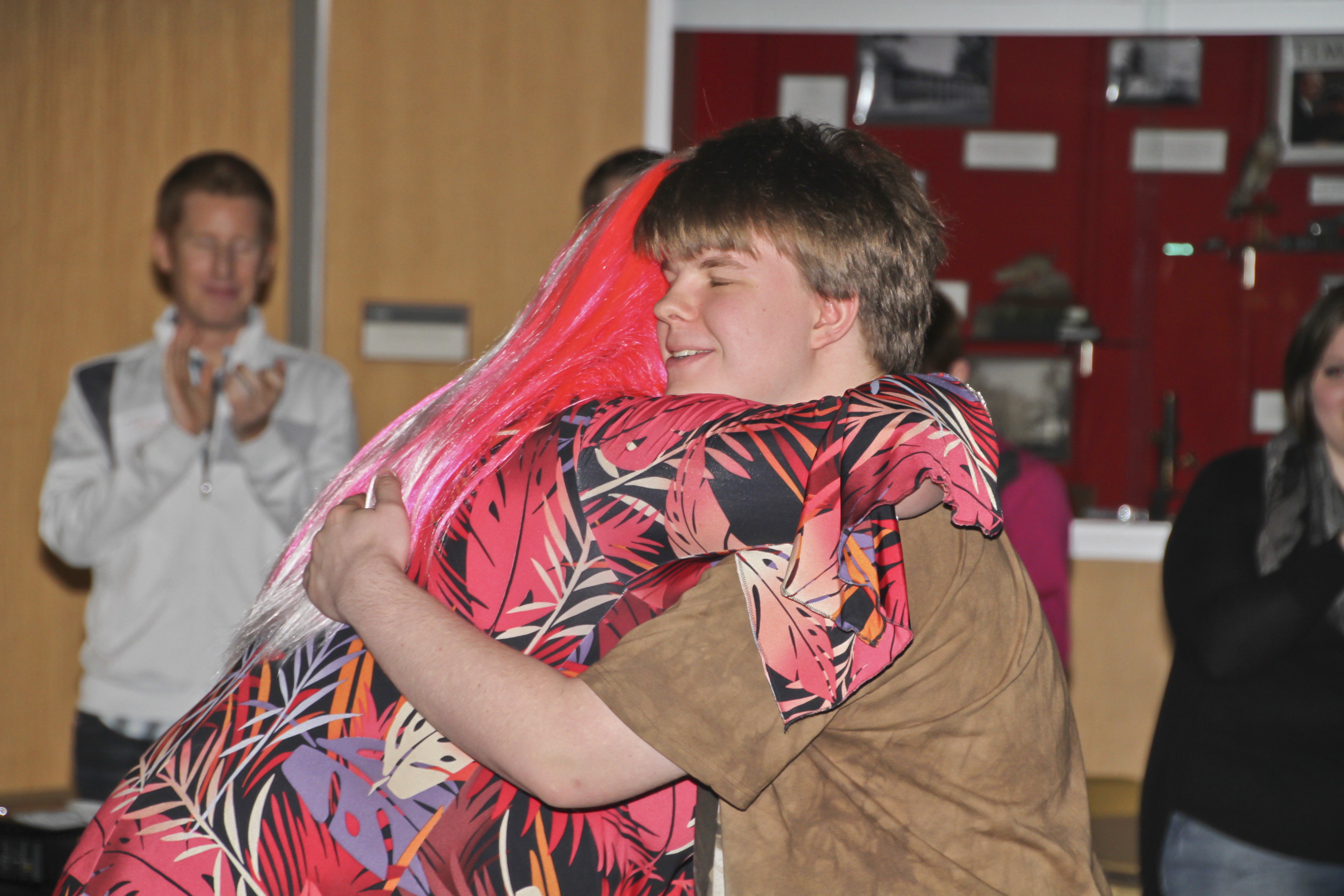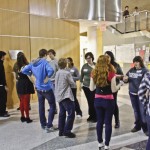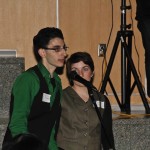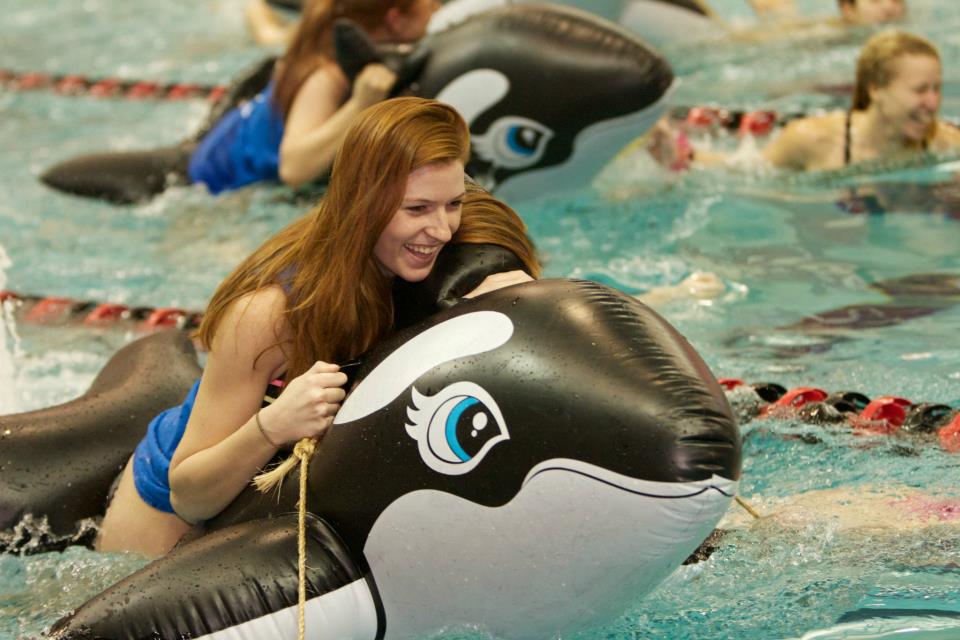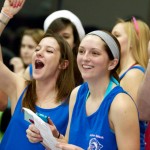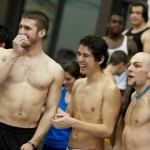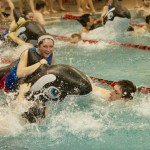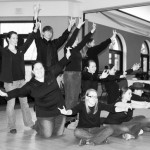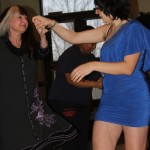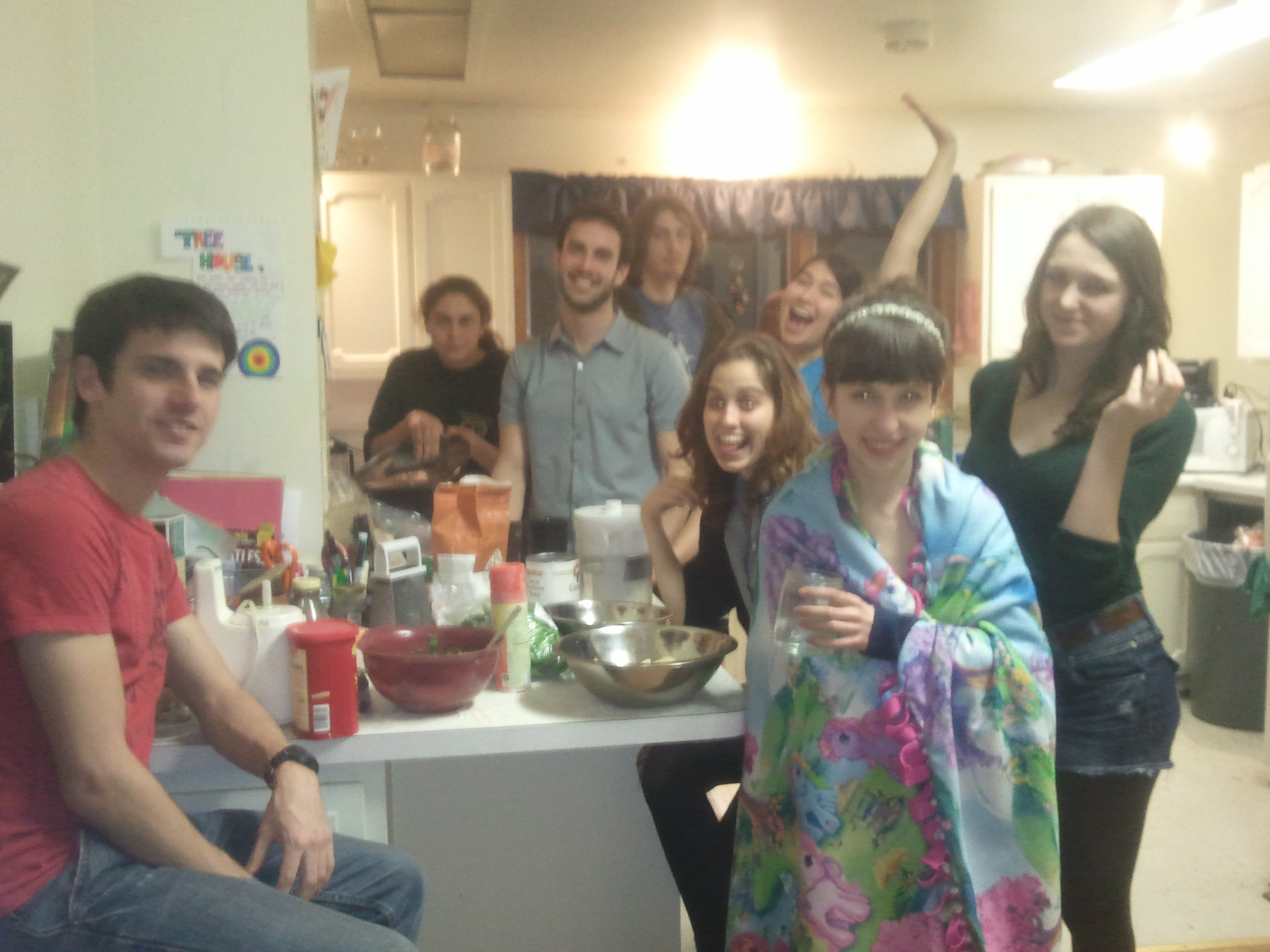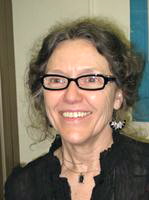Women and gender studies continues to focus on important issues
National debates may shift the focus of women and gender studies to sexuality, queer or gender studies, but Ohio Wesleyan’s WGS program continues to hold women as a high priority.
The WGS program is an interdisciplinary course of study comprised of sociology, history, literature, anthropology, economics, journalism and several other departments on campus.
Introduction to WGS, Gender in Contemporary Society and Sexuality Studies are three of the current course offerings in the WGS program.
Historical sketch of Ohio Wesleyan females
In 1850, long before thoughts of a women’s studies program were entertained, Ohio Wesleyan University was founded as an all-male college. The institution’s founders felt the need for women to be educated as well, so they established the Ohio Wesleyan Female College in 1853.
In 1877 the two colleges merged, enabling women “to secure an equal educational opportunity with men,” according to the Board of Trustees minutes from June of 1877. Curfews, special brochures for parents, all-female dorms and other strict regulations were put in place to protect the fair sex.
From this time forward, the woman’s role at OWU gradually changed. The all-female residences of Monnett Hall and Stuyvesant Hall were replaced by the co-ed dormitories of today’s campus. Organizations such as the women’s booster chapter of Mortar Board, the Women’s Resource Center and the Women’s House were established for the promotion of women’s issues.
As early as the 1960s and 70s, a Feminist Fortnight was held on campus. This was a two week period focused on women’s issues and personal growth for females.
“It is our hope that the program will foster new consciousness for women and men who wish to make change in their own lives and stimulate an increased awareness of women’s roles as agents of change within our present social structure,” from the 1974 Feminist Fortnight brochure.
Women’s Week, the contemporary version of Feminist Fortnight, continues to this day. Documentaries, the Take Back the Night sexual assault awareness program and other activities are held during this time.
As OWU faculty members and students became more active and outspoken about women’s issues, the need for a women’s studies program was recognized.
Beginnings of a discipline
Kaaren Courtney, professor of modern foreign languages, came to OWU’s department of romance languages in the fall of 1967.
Courtney said she had recently received tenure when several older women got together and picked her to help them get the women’s studies program started.
“I thought I could do it and I liked the challenge of it,” she said. “I think it’s fair to say that the other female faculty members in romance languages backed me up. They all said yes, that’s a good thing to do. So, I felt supported by my friends and colleagues.”
Courtney taught the first introduction to women’s studies course in the spring of 1976. She said there was an even distribution between men and women in the course.
“They were hippie men,” she said. “This was the 1970s, people were still anti-war and everything. I loved developing that first class.
OWU’s women’s studies major, the first in the GLCA, was officially approved by the faculty in 1981, but Courtney said there were some men who didn’t want it to happen.
Courtney said while she was in a department where many females were teaching, the climate for women on campus was overall not very good.
“I think by the end of the 1960s the female faculty knew that we were getting shorted in terms of numbers, pay and a lot of things,” she said.
Courtney said despite these issues of equality, many older male faculty members did understand the issues of the day and were “immediately behind the advancement of women and the major.” She said there were some male faculty members who had major sexual harassment issues with female students.
“I think the climate for female students today, vis-à-vis their academics, has improved a lot,” she said. “However, I’m not sure that socially on campus the situation has changed as much as it should have by now.”
A former student’s perspective
Kim Keethler Ball (’83) was a women’s studies and journalism double-major. She said from her first year at OWU she was on track to become a women’s studies major. After the Academic Policy Committee approved the major, she officially declared her junior year.
Ball was the first women’s studies major. Her first class was Women in American History.
“My head sort of exploded,” she said. “My whole world became new again with that course and I fell in love with women’s studies. I wanted to take any course which said ‘women and’.”
She said areas of women’s studies and feminism were new topics and diversity was beginning to be explored at this time. She added that the major “drove my student involvements and extracurricular activities from the start.”
Ball was the president of the Women’s Resource Center and worked on the Athena, a feminist literary magazine, as an independent study. She was a member of the women’s studies committee, the committee on the status of women and the affirmative action committee.
“The WRC was really vibrant back then,” she said.
Ball, who lived in Hayes Hall, said the climate on campus was socially scary.
“It was the tail end of the 70s so it was wild here,” she said. “I was here when the Betas hauled their furniture out and torched it.”
She said part of the social climate on campus involved a divide between the heterosexual and lesbian feminists on campus.
“Back then there wasn’t an in between in the muck that was feminism,” she said. “It was important to know that you could still be heterosexual and feminist.”
Ball also said it was difficult telling her parents she was a women’s studies major – her father said he didn’t want to see her carrying signs on the news and her mother asked why she had to call herself a feminist.
“I certainly didn’t fit in anymore when I went home,” she said.
Women’s studies incorporates gender
Shari Stone-Mediatore, interim director of Ohio Wesleyan’s women and gender studies program, said the shift to WGS came in 2003.
“We fought about whether we should change it to gender studies and we decided to make it WGS because there are still issues that affect women,” she said. “There are women’s studies that need to be addressed, in addition to the various ways that gender constructions affect identity.”
Stone-Mediatore said she thinks the major will stay with WGS for a while because it covers anything which is important. In addition, she said if there is a shift in the make-up or naming of the program, it will hopefully come from a collaboration between students and faculty.
She said the WGS major will continue to be important in the future because it is another lens to view the world through.
“To use gender as an analytical tool and to realize how gender ideology, as a way of thinking, allows us to look critically at the way we view the world,” Stone-Mediatore said.
She said the incorporation of gender in the name of the major highlights additional issues related to women’s studies.
“We’re all gendered and we’re all influenced by gender ideology and it’s partly about women’s struggles,” she said. “Gender is something which has organized all of our lives and our society, so it’s something all of us need to learn about in order to reflect critically and be informed about our world.”
Stirrings of a new generation
Junior Paige Ruppel, moderator of the Women’s House, said other fields of study have excluded women and focused on men.
“You can’t escape the fact that we live in a male-dominated society,” said Ruppel, a biology and WGS major.
Ruppel said one of the arguments against the program is that it creates a division between the male and female gender, but she disagrees with this viewpoint.
“I think people who make that argument are very misinformed about what feminism is and they’re looking at it from a defensive perspective that feminism seeks to destroy men,” she said. “If they sought to better understand what the WGS major is, they would see that the aim of the major is to dissolve that division.”
She said regardless of what the program is called in the future, the field will be necessary until equality is achieved between the sexes.
“I think these inequalities are more muted than when the major started, but they’re still relevant today,” Ruppel said.
She said it’s easy to forget academic institutions and disciplines have been informed by males historically. For Ruppel, the suggestion that the major offers topics covered by other fields of study is false.
“To some extent this is true, but the thing that distinguishes it is that it’s informed by women and you’re looking at the broader social structure from a woman’s perspective,” she said. “It’s very difficult to accomplish that elsewhere.”
Ruppel said for her, the debate about what the national debate about what the major should be called is purely semantic.
“Regardless of what the department is called, this major will be relevant until we achieve equality between the sexes,” she said. “I think the inequalities are more muted than when the major started, but they’re still relevant.”
She said a gender studies department won’t change the content of what the major is because “there’s a lot of discussion about patriarchy in regards to both genders.” Additionally, she said sexuality studies as a freestanding discipline may not be necessary because gender and sexuality are intertwined and can’t really be separated in an academic setting.
Ruppel said the creation of a queer studies department would be a positive thing, but it’s not practical at OWU because currently there is only one faculty member in the actual WGS program.
“It would be a twin department to WGS and would focus more on queer theory,” she said. “Queer is becoming more political and relevant. It’s hard to cover queer studies in one course and currently, it’s only a section of one course at OWU.”
Ruppel said changes to the name of the department could come from the student community, but this movement may be far in the future because the WGS department is currently so small.
Junior Colleen Waickman, StAP intern at the LGBTIQ Resource Center and first year resident at WoHo, said the WGS field was the result of a political movement, so the students in the major have a passion others don’t.
“WGS is so important because the major is aimed at discovering knowledge about how people see the world through the lens of gender, but it was also born out of an effort to unite academia and activism,” she said.
Waickman said WGS attempts to deconstruct the division between the genders by looking at the world through another lens.
She said the naming of the program will probably shift in the future, and eventually every university will have a WGS department of some sort.
“I think that it’ll grow to be less stigmatized and it’ll become less of a subculture within universities,” Waickman said.
Waickman also said including women in the name of the program is an important aspect for her.
“Without saying women in the name, I think we’re ignoring that homophobia and sexism are intrinsically intertwined,” she said. “I think all social problems are rooted in gender inequality, and WGS teaches you to see the world in a totally different way.”
She said there is a historical importance to including women in the name, so leaning toward simply gender studies would take away the focus on historical inequality of women. She said instead of focusing on queer studies, there should be a movement towards incorporating sexuality studies to a greater degree.
“The only reason sexuality is such a big deal is because gender is a big deal,” she said. “If we didn’t care so much about gender, then you could fuck whoever you wanted.”
Smith College in Northampton, Mass., and other universities are beginning to offer sexuality women and gender studies departments, commonly referred to as SWAG. But for Waickman and other students, this shift is far in the future for OWU.
Junior Anna Cooper, second-year Women’s Resource Center employee and WGS minor, said any changes to the department would start with academia and trickle down through students.
“It’s all about the philosophy of the individual department,” she said. “The field, in general, is important to learn about because it allows a better understanding of societal interactions.”
Cooper said she believes women are still subordinate to men and this should be reflected when studying the WGS discipline. She said in the realm of WGS, it’s important to “make an effort to study the marginalization of women and work that back into the mainstream.”
“I think the direction we’re going is eventually toward queer studies, but right now it kind of depends where you are and how you choose to separate them, but they’re all connected,” she said.
For Cooper, who said WGS influences everything she does, said it’s also important to address gender inequity under the broad category of females.
“Gender affects every single person,” she said. “Men have a gender too, but male and females are not the only genders.”
Cooper noted OWU’s transition from WS to WGS and said the next focus of the field may move toward a broader study of gender.
“I’m not sure which term is going to be the umbrella category of study, but first it’ll probably be gender studies with the incorporation of queer studies later down the line,” she said.
Cooper said OWU’s current WGS department does a good job of encompassing gender and sexuality, which is a byproduct of the third wave of feminism.
“Third wave feminism is deliberately more encompassing of gender, sexuality, race and class,” she said. “It’s intersexuality oriented.”
Feminism unites the generations
Ball, Cooper’s mother, said she couldn’t imagine going through a whole curriculum of women’s studies courses and not identifying as a feminist. For her, learning about social justice and reality require a deeper understanding and advocacy for women.
“Feminism gets under your skin and into your bones,” she said. “It really becomes part of your essence.”
She said when she was a student, preconceived notions of the “angry feminist” altered people’s perceptions of her. In order to combat this, she suggests further education of both men and women.
“I know a lot of men who are very interested in women’s issues and who are willing to walk side by side with women in our journeys,” she said. “I do think that the more both men and women learn in the subject of WS, the closer we’ll get to lessening any divide.”
Cooper said any divisions created by the word feminist have the ability to be overcome.
“People should feel more comfortable identifying as feminists and less scared of the term,” she said. “If you understand it’s really based in a desire for gender equality and advocating for choice in all areas of life, then I think it’s not something difficult to be on board with.”
Ruppel, who said feminism is an integral part of her life, also said stereotypes of the word are perpetuated by the media.
“Forty years later we still haven’t gotten over the idea of a militant, lesbian, bra-burning, fem-nazi,” she said. “People opposed to women’s studies and feminism largely don’t understand what feminism is.”
Ruppel also said feminism has made her a lot more aware of the world around her.
“Once feminism gets a hold of you it doesn’t really let go,” she said.
Waickman said she thinks people who are for women’s rights and don’t identify as a feminist are afraid of the word and the negative stereotypes associated with it.
“If we’re not allowed to identify as a feminist because of the word, that’s a totally patriarchal thing,” she said. “It implies that femininity or womanhood is bad, simply because of the word.”
Stone-Mediatore said identifying as a feminist isn’t necessary for the field of study, but a feminist perspective as an analytical tool is useful.
“It has to do with viewing the world with attention to the ways that gender hierarchies have organized our world and with concern to analyze those hierarchies critically,” she said.
Where have all the feminists gone?
Ball said the evolution of women’s studies and the major are inevitable, but the history and activism associated with women’s rights is still important.
“With the political climate right now, it’s an obvious indicator that we haven’t fully arrived as equal human beings with all the rights we should have,” she said. “That’s true across the world. I don’t want to diminish the importance of sexuality and queer theory, but WS is a worthy discipline in its own right.”
For Courtney, the debate over the name of the department is an academic issue.
“People shouldn’t be sitting around discussing whether it should be called women’s studies or gender studies,” she said. “Women’s health issues, but especially reproductive issues, are being attacked again. Seems to me we need to get back in the trenches.”
She said the major should be as inclusive as it can be, but the modern-day attack on women should be addressed first.
“Women, whatever their sexuality may be, are being attacked from every side,” she said.
Courtney said she remembers when abortion wasn’t legal anywhere in the U.S. and when she first came to OWU, the Chaplain’s Office had a fund of money to pay for a female’s plane ticket out of state in the incident of unwanted pregnancy.
“When I think about those issues, it’s really back to the beginning in a lot of ways,” she said. “Female students said it would never happen again, but the issues are resurfacing.”
Courtney said the field needs to be more activist, but that proposing a solution in addition to outlining the problems is an important step.
“I think that today, young women expect different things than their male compatriots,” she said.
Ruppel said looking at a newspaper and reading about contraception amendments, Virginia’s transvaginal ultrasound proposals and other issues, make inequalities for today’s young woman apparent.
“I think it’s very easy to forget that women still aren’t equal,” she said. “We have a tendency to look at the past and see how far we’ve come, but we still have far to go.”
